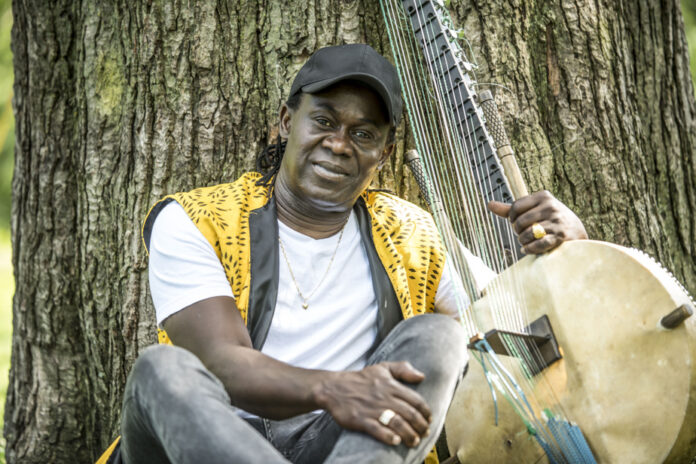Returning from his very convincing flamenco adventure with guitarist Caroline Planté (Kora Flamenca, 2020), Zal Sissokho puts his sparkling kora back at the heart of his music. His very recent album is called La source, but one should not imagine that the approach of the Senegalese griot and his director, Élage Diouf, is traditionalist. It is rather modern, from this jumping bass to the tribal pulsations of the percussion through the tonic guitar accents.
There is something familiar in this music which is deeply rooted in Mandinka culture. We recognize both the rhythms and the typical harmonic constructions. However, there is also something very personal, particularly in the rhythm of the singing, whether Zal Sissokho occupies the space alone or shares the microphone with others. Her duet with Djely Tapa (Labannya), a Malian singer also based in Montreal, also gives rise to a very nice exchange.
Returning to the source also means going towards the other for the koriste, we understand: four of the nine pieces on his new disc are in fact collaborations – two with Djely Tapa, one with Diely Mori Tounkara (another master of the kora, from Mali) and Élage Diouf himself. The latter appears on Kela, a piece imbued with nostalgia and the centerpiece of the record, where the voices of both respond to each other, with passion and humanity.
This sixth disc by Zal Sissokho is one of those which reveals itself over time, which reveals its quiet strength and percussive tingling which, very often, are relegated to the background and constitute living carpets on which the kora notes flutter. Only La Dignité, the last piece of the disc, the text of which is in French (said by Gilbert Dupuis Poir), stands out: it feels like an extract from a children’s story that arrives like a hair in the soup…















